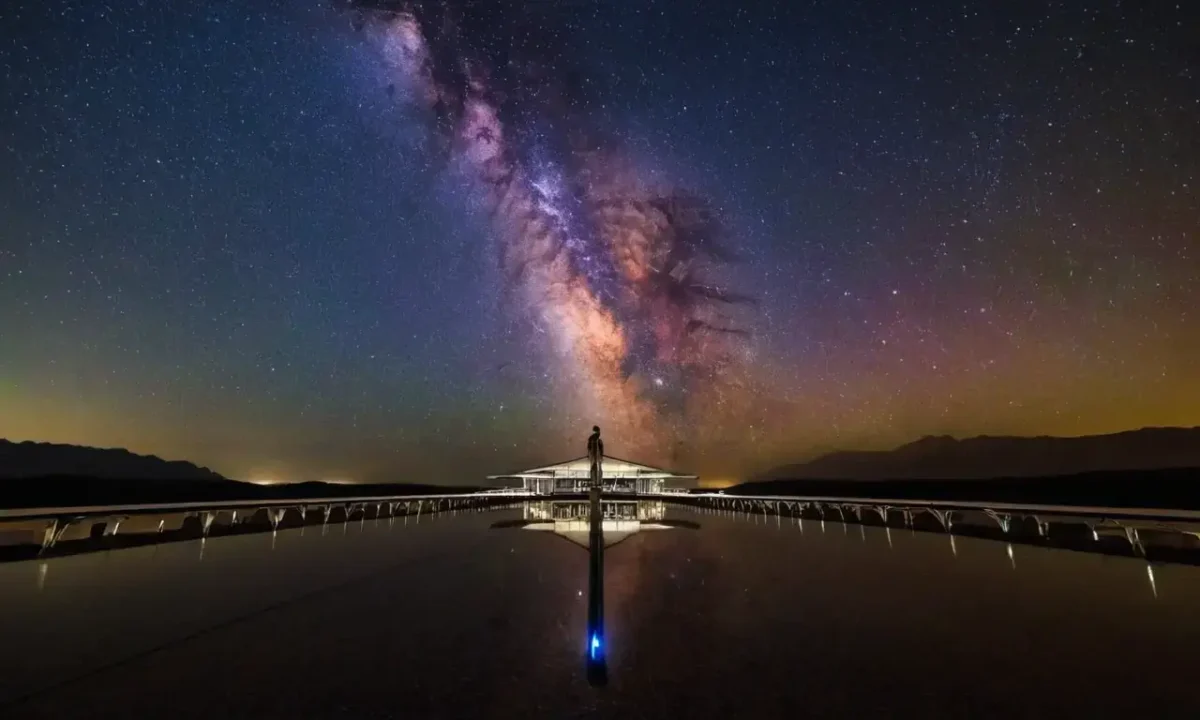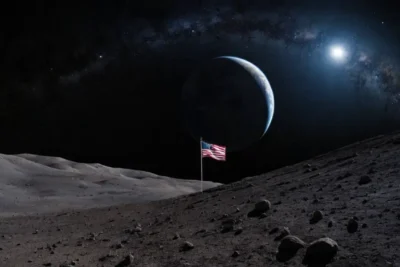
Space Tourism: A New Era of Exploration

Space tourism is a rapidly evolving field that promises to revolutionize our understanding of travel and exploration. It involves journeys beyond Earth's atmosphere, offering individuals the opportunity to experience weightlessness, witness breathtaking views of celestial bodies, and potentially even stay in space for extended periods. This burgeoning industry has captured the imagination of many, sparking both excitement and debate about its potential impact on humanity's future. As technology advances and costs decrease, space tourism is poised to become a more accessible reality, opening doors to new frontiers of adventure and scientific discovery.
This article delves into the world of space tourism, exploring its history, technological advancements, economic implications, ethical considerations, and potential future trajectory. We will examine how pioneers like Dennis Tito paved the way for commercialization and discuss the challenges and opportunities that lie ahead. By understanding these aspects, we can better appreciate the transformative nature of space tourism and its role in shaping our relationship with the cosmos.
The Rise of Space Tourism
The concept of space travel has captivated humanity since the dawn of time. However, it remained largely confined to scientific endeavors and military applications until the late 20th century. With advancements in rocketry and spacecraft technology, private companies began exploring commercial possibilities for space tourism. This shift was fueled by several factors:
- Technological Breakthroughs: Innovations like reusable launch vehicles and advanced life support systems made space travel more affordable and efficient.
- Increased Private Investment: Companies saw the potential for profit and began investing heavily in developing space tourism infrastructure.
- Shifting Public Perception: The public's fascination with space exploration grew, leading to increased demand for unique experiences.
The first successful commercial spaceflight was launched by Space Adventures in 2001 when Dennis Tito became the first "space tourist." He embarked on a suborbital journey aboard a Russian Soyuz spacecraft, marking a significant milestone in the history of space tourism. This event sparked a wave of interest and investment, paving the way for future ventures.
Pioneers and First Trips
The early pioneers of space tourism faced numerous challenges, including high costs, technical limitations, and regulatory hurdles. However, their dedication to pushing boundaries paved the way for future generations of space travelers. Dennis Tito's journey aboard the Soyuz marked a turning point in the industry, demonstrating the feasibility of commercializing space travel.
Following Tito's pioneering voyage, other individuals embarked on similar journeys, including Mark Shuttleworth and Anousheh Ansari. These pioneers not only contributed to our understanding of space travel but also helped establish space tourism as a viable industry. Their experiences provided valuable insights into the challenges and rewards associated with this unique form of exploration.
The development of reusable launch vehicles like SpaceX's Falcon 9 has further revolutionized space tourism. This technology significantly reduces the cost of launching payloads into space, making it more accessible to private companies and individuals alike. As these advancements continue, we can expect a surge in new ventures and opportunities for space travel enthusiasts.
Commercialization and Future Prospects
The commercialization of space tourism is transforming the way we view space exploration. Companies like Virgin Galactic and Blue Origin are actively developing suborbital and orbital spacecraft designed to accommodate tourists. These ventures aim to provide unique experiences that allow individuals to witness the beauty of Earth from space, experience weightlessness firsthand, and contribute to scientific research.
The future of space tourism is bright. Projections indicate that the industry could generate billions of dollars in revenue within the next two decades. As technology continues to advance and costs decrease, more people will be able to afford these once-exclusive experiences. This trend has led to the development of space hotels and other innovative travel concepts designed to cater to the growing demand for space tourism.
However, challenges remain. Regulatory frameworks need to evolve to ensure safety and environmental protection while fostering responsible innovation in the field. Additionally, ethical considerations regarding access to space and its impact on future generations must be addressed. By navigating these complexities, we can ensure that space tourism remains a positive force for humanity's exploration of the cosmos.
Technological Advancements

The development of new technologies is crucial for the continued growth of space tourism. Several advancements are shaping the industry's trajectory:
- Reusable Launch Vehicles: Companies like SpaceX and Blue Origin have developed reusable launch vehicles, significantly reducing the cost of space travel. This innovation has made it possible to offer more affordable and accessible experiences for tourists.
- Advanced Life Support Systems: The development of life support systems that can sustain human life in space is crucial for long-duration missions. These systems are becoming increasingly sophisticated, allowing astronauts to live comfortably and safely in confined environments.
- Spacecraft Design: New spacecraft designs prioritize passenger comfort and safety while maximizing efficiency during space travel. This includes features like spacious cabins, panoramic windows, and advanced navigation systems.
These technological advancements are not only improving the experience of space tourism but also paving the way for future missions to Mars and beyond. As technology continues to evolve, we can expect even more innovative solutions that will further democratize access to space exploration.
Environmental Concerns and Regulations
The growing popularity of space tourism raises concerns about its environmental impact. Launching rockets into space releases greenhouse gases and contributes to the overall pollution of Earth's atmosphere. However, companies are actively working on sustainable solutions to minimize their ecological footprint.
One key area of focus is developing reusable launch vehicles like SpaceX's Falcon 9. This technology reduces the number of launches required, thereby decreasing the amount of fuel burned and greenhouse gases emitted into the atmosphere. Additionally, companies are exploring alternative propulsion systems that could further reduce environmental impact.
Furthermore, regulatory bodies worldwide are working to establish clear guidelines for space tourism. These regulations aim to ensure safety, protect space resources, and promote responsible innovation in the field. As the industry grows, these frameworks will become increasingly important in shaping its future trajectory.
Economic Impact and Investment
The emergence of space tourism has significant economic implications. The industry is creating new jobs and stimulating investment in various sectors, including aerospace engineering, hospitality, and technology development. Companies involved in space travel are attracting investors who see the potential for long-term growth and profitability.
Furthermore, space tourism can contribute to scientific research by providing valuable data about Earth's atmosphere and climate change. This information can help scientists better understand our planet and develop solutions to address global challenges. The economic benefits of this industry extend beyond direct investments; it also fosters innovation and technological advancement across various sectors.
However, concerns remain regarding the potential for space tourism to exacerbate existing inequalities in access to space exploration. Ensuring that the benefits of this industry are shared equitably is crucial for fostering a more inclusive future for humanity's journey into the cosmos.
Ethical Considerations and Accessibility
The ethical implications of space tourism raise important questions about accessibility, environmental impact, and the potential for exacerbating existing inequalities. As the industry grows, it's essential to consider these issues carefully to ensure that space exploration remains a force for good.
One key concern is access to space. While space tourism has the potential to democratize space travel, ensuring that this opportunity is available to all individuals regardless of their socioeconomic background is crucial. Initiatives like educational programs and scholarships can help bridge the gap and make space exploration more accessible to diverse communities.
Furthermore, environmental concerns surrounding rocket launches need to be addressed through sustainable practices. Companies are exploring alternative propulsion systems and developing reusable launch vehicles to minimize their impact on Earth's atmosphere. Additionally, regulations regarding space debris management are crucial for ensuring the long-term sustainability of space tourism.
Space Hotels and Sustainable Travel
The development of dedicated space hotels is a significant step towards making space tourism a more accessible reality. These specialized accommodations will offer tourists a unique experience by providing comfortable living spaces in the harsh environment of space.
Companies like Axiom Space are actively developing these facilities, aiming to create luxurious environments that allow individuals to enjoy the wonders of space for extended periods. The creation of space hotels not only enhances the tourism experience but also opens up new possibilities for scientific research and exploration.
However, it's crucial to ensure that these ventures prioritize sustainability. By minimizing their environmental impact through efficient energy use and waste management practices, companies can help ensure that space tourism remains a positive force for humanity's future in space.
Conclusion
The rise of space tourism is revolutionizing our understanding of the cosmos and its potential for human exploration. As technology advances and costs decrease, we can expect to see more individuals embarking on this once-exclusive journey into space. However, it's crucial to approach this new frontier with a focus on ethical considerations, environmental responsibility, and equitable access to ensure that space tourism benefits all of humanity. By navigating these challenges responsibly, we can unlock the full potential of this exciting industry for generations to come.
Leave a Reply





Related Links